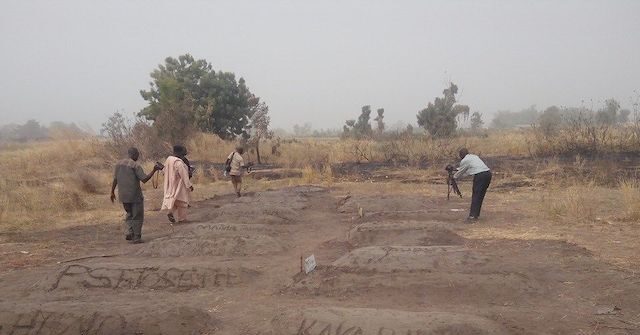Fifteen years ago, Pastor Ohji delivered a poignant final sermon in Northeast Nigeria, a moment characterized by tears of gratitude and love for his community. His words were simple yet profound: “Tell my family I died well.” This six-word sermon encapsulated a life dedicated to faith and love, demonstrating the weight of what it means to live and die with purpose. The touching clarity of his farewell highlights not just the tragedies faced by countless persecuted Christians, especially in Nigeria, but also the enduring message they impart about life’s true priorities.
Pastor Ohji’s life was tragically cut short by Boko Haram, the notorious Islamist group known for its violent campaign against Christians in Nigeria. Despite the escalating violence, he exhibited remarkable bravery by urging his congregation to seek safety. However, when it became evident that an elderly member was in peril, he chose to return, fully aware of the potential consequences. Captured alongside others, Pastor Ohji faced the harrowing choice to renounce his faith or uphold it to the end. Even as fear surrounded him, he began to sing hymns, filling his fellow captives with courage, embodying strength and faith until the very last moments of his life.
In recounting Pastor Ohji’s story, we are reminded of the millions of Christians worldwide who have suffered and sacrificed for their beliefs. His story resonates deeply with those who have lived through similar tribulations, conveying universal lessons about the essence of love and purpose in life. “Dying well,” as exemplified by Ohji, is about aligning one’s existence with a higher calling, remaining committed to that mission regardless of circumstances, including death. The tears he shed and his final message reflect a life anchored in love for his family, friends, and faith community, underscoring that at the end of life, what truly matters is our relationship with God and the love we extend to others.
Thanksgiving, a time traditionally centered around gratitude, offers a transformative perspective when viewed through the lens of Pastor Ohji’s words. The holiday’s origins, intertwined with the profound national scars of the Civil War, emphasize gratitude that emerges not from abundance but from adversity. Lincoln’s call for unity and healing highlights how true thanksgiving invites us to reflect on our blessings amid struggles. In this context, Pastor Ohji’s experience encourages us to consider deep gratitude as a response shaped by loss and resilience, reinforcing our commitment to a shared mission of love and understanding.
The essence of living well, much like the teachings of Pastor Ohji and the historical reminders that accompany Thanksgiving, lies in prioritizing what truly matters—our relationships, our faith, and our capacity for love. As the martyr’s story challenges us to reassess our lives, we are reminded that meaning is found not in worldly possessions but in the enduring connections we forge with God and humanity. The selfless love bestowed upon us is a call to action, urging us to live in a manner that reflects this truth.
As families gather around tables filled with love and gratitude, the lessons derived from Pastor Ohji’s life can inspire profound reflection. Understanding the significance of dying well enhances our appreciation for living well—it compels us to consider how we can embody the values of love, faith, and resilience each day. These considerations not only enrich our own lives but strengthen our bonds with those around us, reminding us that we all aim to complete our journey full of love and purpose, having run a good race.
In sharing Pastor Ohji’s story, Jeff King illuminates the broader context of religious persecution and the invaluable lessons it offers to humanity. Kings’ passion and dedication for advocating on behalf of the persecuted serve to remind us of our responsibility towards empathy and understanding. As we navigate the complexities of our lives, especially during times like Thanksgiving, the legacy of martyrs like Pastor Ohji inspires us to remain steadfast in faith, to love selflessly, and to recognize the profound meaning that emerges from both our struggles and our celebrations.

